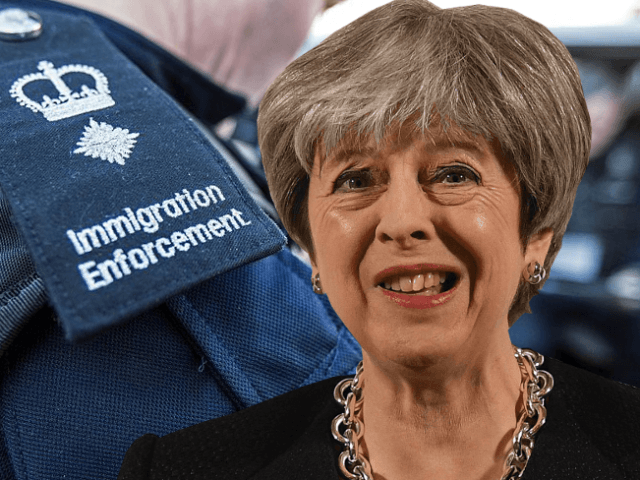Prime Minister Theresa May has said the European Union (EU) will have a say in setting the UK’s migration policy after Brexit, shortly after giving a speech about a ‘softer’ form of Brexit.
Even the strongly pro-Brexit members of Mrs. May’s cabinet – such as Boris Johnson and Michael Gove – have not said they are in favour of significantly reducing immigration, and other ministers are concerned the post-Brexit migration system will be similar to how it is now, The Times reports.
Mrs. May has repeatedly delayed publishing a paper on immigration after the UK leaves the EU, is currently consulting with the independent Migration Advisory Council (MAC) body on proposals, and suggested on Sunday the EU would have a say in discussions.
“What we’re saying is that we’re going to want to ensure that people from the UK can still go abroad to the other 27 members of the EU, and vice versa,” she told BBC One’s The Andrew Marr Show.
Questioned on how she would achieve this, she replied: “We’ll be setting out our immigration rules, we’ll negotiate with the EU. Because, obviously, we want to look at what happens to UK citizens as well as what happens to EU citizens.”
Reacting to her comments, UKIP’s leader in the London Assembly and former leadership candidate Peter Whittle, blasted: “This would be the most disgraceful betrayal of all. It must not be allowed to happen.”
Guy Verhofstadt: ‘Not Acceptable’ for UK to Limit Immigration After Brexit https://t.co/60QIRRedbF
— Breitbart London (@BreitbartLondon) February 19, 2018
Mrs. May gave the interview shortly after making her third major speech on Brexit, in which she was widely perceived as presenting the case for a “softer” form of Brexit than previously hinted at, but with the UK still outside the Single Market and Customs Union.
She called for the UK “remaining in step” with the bloc in some policy areas, insisted on the UK remaining locked in some EU agencies, whilst failing to use the word “divergence” once.
The government has already crumbled to EU demands for borders to remain open to mass immigration during the two-year Brexit ‘transition period’, and Brussels is likely to push for continued, long terms access to British labour markets, meaning the UK’s negotiating stance could soften further.

COMMENTS
Please let us know if you're having issues with commenting.